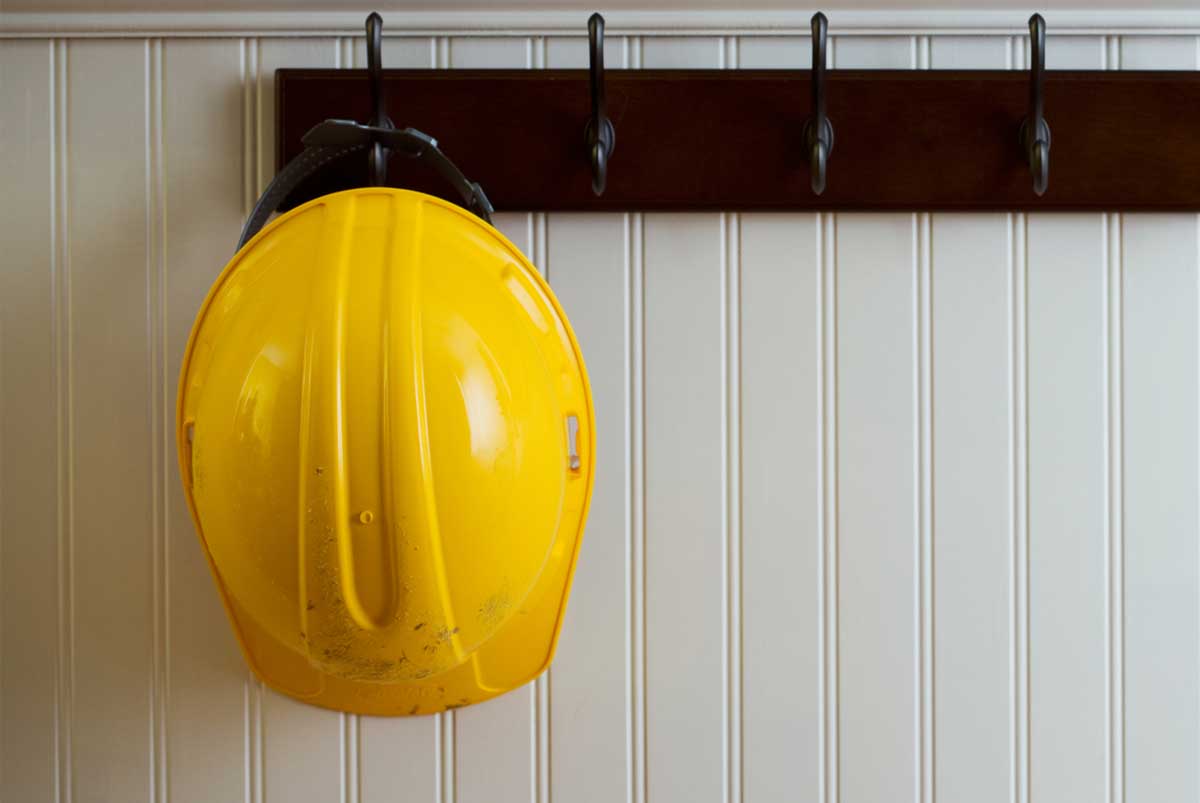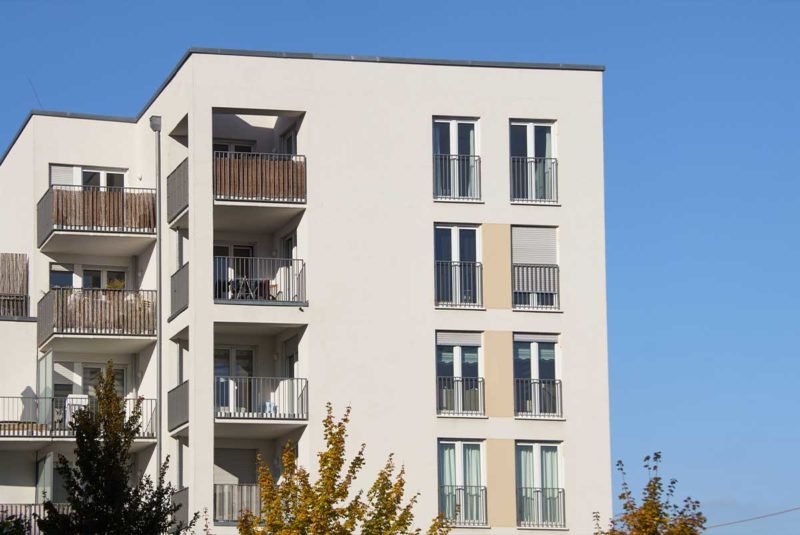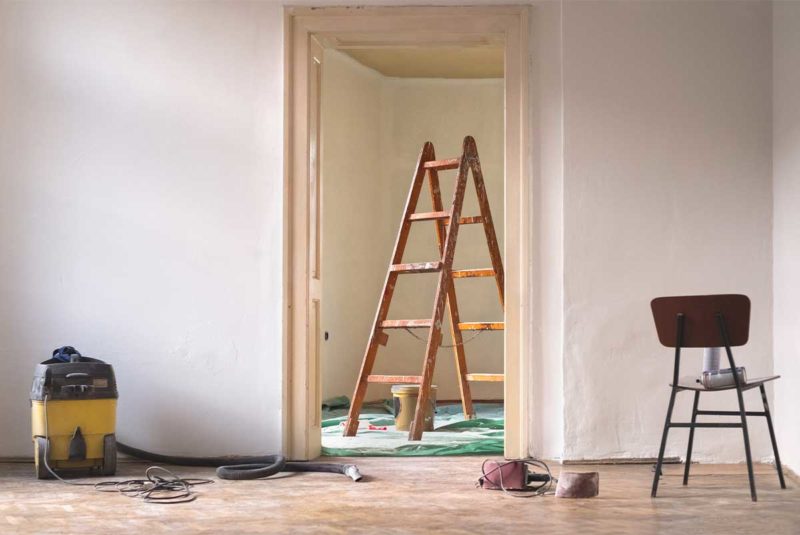Ready To Buy a Home?
Get Approved to Buy a Home
Rocket Mortgage® lets you get to house hunting sooner.
You’re probably looking into FHA construction loans because you’ve just found the perfect piece of land, but it’s missing one crucial detail: a house. Or maybe you’ve been thinking about harnessing your inner Chip and Joanna Gaines, and you’ve finally decided to buy that fixer-upper on the good side of the street.
With the right lending option, your dream home-to-be can become a reality. And that right lending option might be a Federal Housing Administration (FHA) construction loan.
An FHA loan comes with fewer underwriting requirements than conventional loans, which makes it a hit with first-time home buyers.
As long as other qualifications are met, FHA construction loan lenders are willing to work with borrowers who have lower-range credit scores and plan on making down payments that are less than the traditional 20%.
Before you pick up a hammer, you’ll want to build up your FHA building loan expertise. Use this guide to learn everything you’ll need to know before you apply, including FHA construction loan requirements, how to apply, types of FHA loans and even FHA construction loan alternatives.
What Is an FHA Construction Loan?
An FHA construction loan can do one of two things: bundle the costs of buying land and building a home into one mortgage or cover the costs of renovations on an existing home.
An FHA construction loan helps simplify the lending process for anyone who plans on building a home. You apply for one loan and get approved for everything upfront. You don’t have to take out one loan for construction and another loan for the land. A timesaver, amirite?
Various FHA-approved lenders offer FHA construction loans. FHA loans are government-backed loans that are aimed at home buyers with credit or savings issues. Because the FHA backs the construction loans, it’s easier for lenders to offer these home loans to a wider range of borrowers.
In terms of qualifying down payment and credit score requirements, FHA construction loans are very similar to other FHA loans. You can qualify for a loan with a credit score as low as 500 and a down payment from 3.5% to 10%.
FHA building construction loans cover all costs associated with construction on your property: the land purchase, plans, permits, approved fees, labor and materials. This one loan should give you the funding you need to build your dream home, renovate a fixer-upper or upgrade your existing home.
Types of FHA Construction Loans
There are two types of FHA construction loans: construction-to-permanent loans and FHA 203(k) loans. The scope and aim of your project will dictate which loan you choose, how much money you can get and what requirements you’ll have to meet to qualify.
Construction-to-permanent loans
A construction-to-permanent loan (aka a one-time close loan) covers all the costs of building a home on purchased land. It covers the land purchase, the cost of building the home and the mortgage.
Construction-to-permanent loans combine a short-term construction loan with a long-term FHA loan. The good news is that borrowers only have to close on the loan once. Once construction is completed, the loan will automatically convert to a permanent mortgage.
Closing once has two huge benefits for borrowers. First, the borrower only goes through the loan approval process once. After your application is approved and construction has started, the second application for the mortgage is automatically authorized.
If this process required two approvals, the borrower would be at a higher risk of not getting approved for the mortgage. Once you start construction, you rack up debt. That would change your credit profile and potentially leave you scrambling to find new sources of funding.
And that’s the second benefit. After you’ve received your initial approval, changes to your financial situation won’t impact your mortgage. Building a new construction home can take a long time, and a lot of things can happen while you wait. You can feel secure knowing that changes to your finances won’t put your mortgage approval at risk.
FHA 203(k) loans
An FHA 203(k) loan (aka an FHA 203(k) renovation loan) gives homeowners the money they need to renovate and make repairs on their property. The key difference between an FHA 203(k) loan and a construction-to-permanent loan is that you can’t use an FHA 203(k) loan to build a home from scratch.
An FHA 203(k) loan allows you to make minor repairs or substantial renovations to an existing home. Borrowers use this loan for fixer-uppers or to make improvements to their homes.
An FHA 203(k) loan acts like a conventional mortgage. You get all the money upfront, and you make monthly payments on a 15- or 30-year term.
This loan has a minimum project spend of at least $5,000. And borrowers can only get up to 110% of the proposed future value of the home. Borrowers are also limited by their regional FHA loan maximums.
The FHA 203(k) loan can cover a wide range of construction projects, including:
- Renovations to improve and fix structural integrity
- Modernization and improvements to the home’s style
- Resolving safety and hazard concerns (we see you, asbestos!)
- Modifications and upgrades to plumbing and septic tanks
- Roof, gutter and downspout repairs
- Landscaping improvements
- Accessibility alterations
- Energy-efficient upgrades
- Conversion projects (like turning a large home into multiple dwelling units)
Borrowers can tap into an FHA 203(k) loan to improve their home and increase its value.
You’ll need to keep an eye on a calendar after you get an FHA 203(k) loan because you’ll be on a tight deadline. Your contractor must start work within 30 days after your loan is approved, and they’ll have 6 months to complete the project.
There are two types of FHA 203(k) loans: limited and standard.
The limited 203(k) loan works for projects that cost between $5,000 and $35,000. This loan is easier to apply for because you’re dealing with a relatively small amount of money. You can’t use the limited 203(k) loan for major structural repairs. And you can opt to work with a 203(k) consultant who will oversee the entire project.
The standard 203(k) loan is for major projects that cost more than the limited 203(k) loan’s $35,000 max. It comes with a lengthy application and approval process. Homeowners opt for the standard 203(k) loan when completing major structural improvements. Working with a 203(k) consultant isn’t optional with a standard 203(k) loan – it’s required.
How FHA Construction-to-Permanent Loans Work
Follow this step-by-step process for a construction-to-permanent loan:
1. Choose the land
First, find land to build on. The property can’t be near a gas well, an oil well, an airport or located in an area that’s prone to flooding. Additionally, your land can’t have any structure on it that requires demolition.
2. Get preapproved
Make sure you meet the minimum requirements to get preapproved for your loan. Check your credit score and check your bank balances for that down payment.
3. Choose a contractor
FHA loans require that you work with a licensed contractor who has liability insurance and at least 2 years of experience building homes. The FHA gets final approval on your choice of contractor(s).
4. Get appraised and inspected
An appraisal is completed on the home to determine its future predicted value. The inspection confirms that the property and land meet FHA requirements.
5. Close on the loan
If your appraisal goes well and the loan application is approved, you can close on the loan. As soon as you close, construction can start. Your contractor can get paid in installments by phases of construction.
The payment schedule should be determined and agreed on before you close and construction begins. The schedule will detail when and how often the contractor will be paid and how much they’ll receive at each phase.
6. Switch to a permanent loan
When construction is complete, your loan will automatically switch over to a permanent loan. At this point, you may even want to consider getting a new permanent loan to get a better interest rate.
Applying for an FHA Construction Loan
FHA construction loan requirements are the same as traditional FHA loan requirements, including:
- Minimum credit score: A credit score of at least 500 (although 580 is preferred).
- Minimum debt-to-income (DTI) ratio: A DTI ratio of 43% or lower.
- Minimum down payment: Borrowers with a credit score that’s lower than 580 must make a down payment of at least 10%. Borrowers with a credit score of 580 or higher can make a 3.5% down payment.
- Loan limit: Make a loan request within your regional FHA loan limits.
- Required documentation: Provide proof of mortgage insurance, an approved consultant and building plans, proof of contractor licensing and more.
- Self-employed requirement: Self-employed borrowers may have to provide additional paperwork that goes back as far as 2 years.
Alternatives to an FHA Construction Loan
FHA construction loans aren’t the only game in town. State governments and local and private lenders offer construction loans. Some of these alternatives may have fewer requirements and better terms for specific groups of borrowers.
Some alternatives include:
- Local bank/builder private construction loans: Your local bank or private builder organizations may offer construction loans. Typically, these loans have strict eligibility criteria and require a 20% down payment. These loans can be less convenient because they’re two-time close loans.
- Local and state programs: Local and state programs sometimes offer construction and rehabilitation loans to lower- and moderate-income borrowers. You need to check with each agency for its specific requirements.
- VA construction loans: Qualifying service members and veterans can apply for a Department of Veterans Affairs (VA) construction loan. These loans don’t require a down payment or a minimum credit score and often offer low interest rates.
- USDA construction loans: Low-to-moderate income borrowers in eligible rural areas may qualify for a U.S. Department of Agriculture (USDA) construction loan. It’s a solid choice for anyone interested in creating a little self-sustainable homestead that supports their farm-to-table ethos.
- Fannie Mae and Freddie Mac construction loans: Fannie Mae has several loan options for new construction homes and home renovations. Freddie Mac’s CHOICERenovation® loan provides funding for renovations. Both lenders have minimum credit score requirements.
Build Your Home Construction Financing Plan
An FHA construction loan could bring you one step closer to building the home of your dreams or making your current home everything you’ve ever dreamed of. Make sure you know and understand all requirements before you apply.
Take the first step toward buying a home.
Get approved. See what you qualify for. Start house hunting.
The Short Version
- You can qualify for an FHA construction loan with a credit score as low as 500 and a down payment from 3.5% to 10%
- FHA construction loans are used to build new homes or repair and renovate existing homes
- The FHA construction loan combines a short-term construction loan with a permanent mortgage. You get the money to build upfront, and once construction is done, the loan switches over to a mortgage




